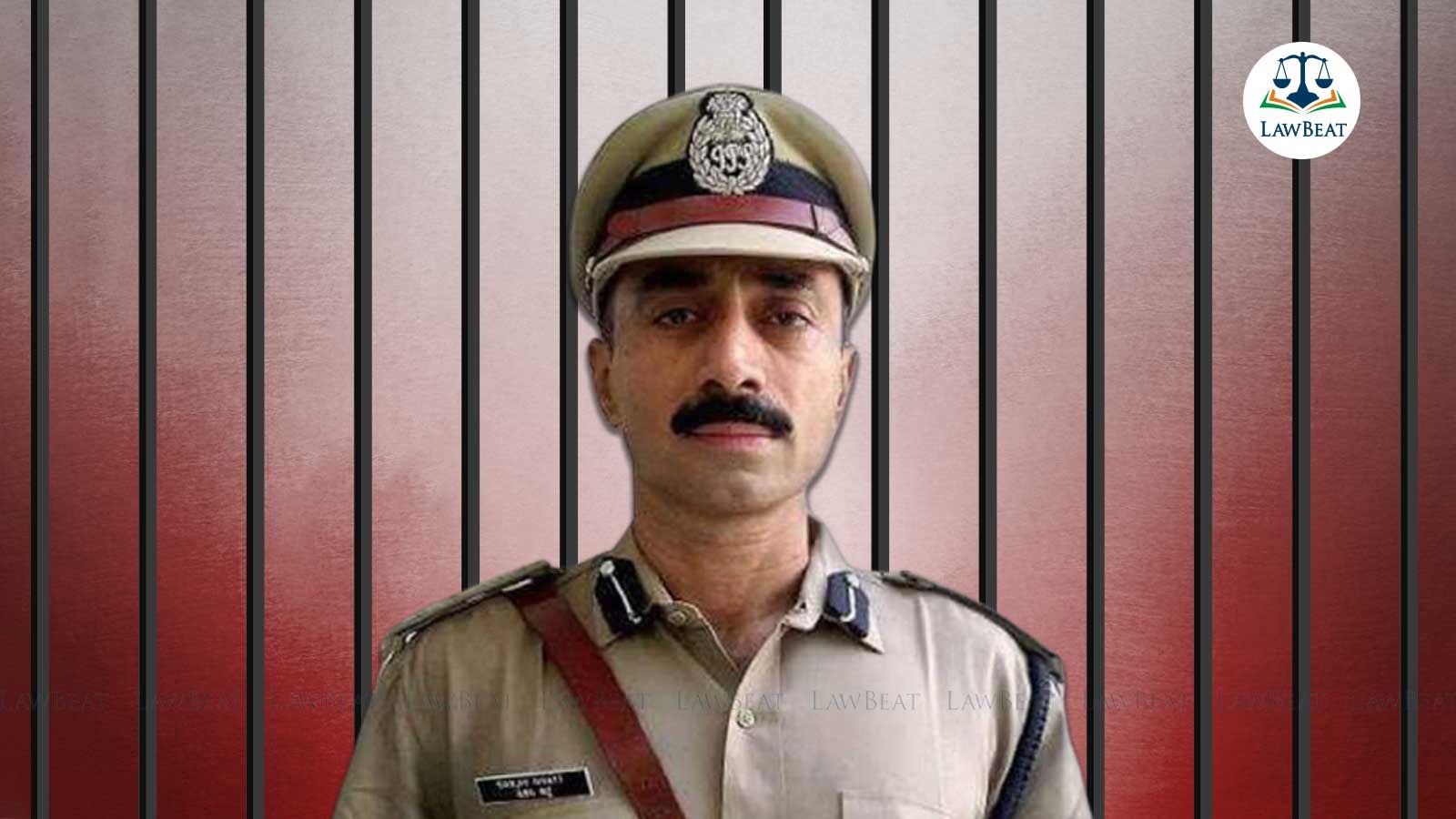Another Conviction for Sanjiv Bhatt: Ex-IPS Officer Gets 20 Years for Planting Drugs

A Gujarat Court ruled that “the entire case of NDPS was raised against Sumer Singh Rajpurohit as per the instructions of accused Sanjiv Bhatt
In a significant development, the Palanpur Sessions court in Gujarat's Banaskantha district, delivered the verdict sentencing former IPS officer Sanjiv Bhatt to a 20-year prison term in connection with the ‘1996 drug-planting case.’
This ruling comes amidst Bhatt's ongoing incarceration, as he is presently serving a life sentence in a separate case related to custodial death.
The ruling was handed down by Additional Sessions Judge JN Thakkar, who found Bhatt guilty under various sections of the Narcotic Drugs and Psychotropic Substances (NDPS) Act, 1985, as well as several provisions of the Indian Penal Code (IPC).
Bhatt has been convicted under NDPS sections 21(c), 27A (pertaining to punishment for financing illicit traffic and harbouring offenders), and other relevant sections of the NDPS Act. Additionally, he has been found guilty under IPC sections 465 (Forgery), 471 (using forged document), 167 (public servant framing an incorrect document with intent to cause injury), 204 (secrets or destroys any document), 343 (wrongful confinement), 120B (criminal conspiracy), and 34 (acts done by several persons in furtherance of common intent).
The court also imposed a fine of Rs 2 lakh on Bhatt along with the prison sentence.
Bhatt's legal troubles trace back to his arrest in September 2018, following a directive from the Gujarat High Court to the Criminal Investigation Department (CID) to investigate a case involving the framing of Rajasthan-based lawyer Sumer Singh Rajpurohit by the Banaskantha police. The lawyer was accused of possessing 1.5 kg of opium at a Palanpur hotel in 1996. During this period, Bhatt served as the district superintendent of police, and another accused in the case was IB Vyas, an inspector with the local crime branch in Palanpur, who later turned approver in 2021.
The prosecution alleged that Bhatt, along with other co-accused, conspired to frame Lawyer Rajpurohit under the NDPS Act. Last year, in August 2023, the Gujarat High Court dismissed Bhatt's plea seeking a transfer of his trial in the 1996 drug-planting case to a court in Banaskantha district.
The court noted, “There was no investigation regarding obtaining, keeping and planting of opium.”
“Various threats were made, the witnesses were feared by the accused who were serving as top police officials and the accused Sanjiv Bhatt had good connections with top police officials and political experts,” the court said.
Considering the proceedings that took place before the high court last year, the court remarked, “The evidence which has been given in the name of the facts and the evidence which has been given accordingly in the reputed court should be accepted as it is worthy of respect.”
In furtherance, the court held, “Thus, it appears from the record that the reputed Gujarat High Court also referred the case to the SIT and ordered that the investigation of the earlier case of 1996 was tainted in view of the fact that the acquisition, possession and disposal of opium had not been investigated earlier. Proved by the appellant. Therefore, on the basis of the evidence prepared or raised in the investigation, it cannot be accepted that the evidence is contradictory or lacks material in the evidence.”
In light of the evidence presented before the court and the observation made by the high court, it was ruled that “the entire case of NDPS was raised against Sumer Singh Rajpurohit as per the instructions of accused Sanjiv Bhatt.”
The court observed that the prosecution successfully demonstrated that the drugs procured, planted, and confiscated in the hotel belong to the category of opium-based substances. Furthermore, it was established that the accused committed an offence under Section 21 of the NDPS Act.
In retrospect, Sanjiv Bhatt, a former Indian Police Service (IPS) officer hailing from the Gujarat cadre, has been at the center of several high-profile controversies. Bhatt gained prominence for his involvement in submitting an affidavit to the Supreme Court of India implicating the then Chief Minister of Gujarat, Narendra Modi, in connection with the alleged role played during the 2002 Gujarat riots.
Bhatt's career took a significant turn in 2015 when he was dismissed from the police service on grounds of “unauthorized absence.”
Following this, in October 2015, the Supreme Court rejected Bhatt's plea to constitute a special investigation team (SIT) for the cases filed against him by the Gujarat government. Additionally, the court lifted a stay on his trial, instructing him to face prosecution.
The Supreme Court's decision came with strong observations regarding Bhatt's conduct, noting his active communication with leaders of rival political parties, alleged tutelage by non-governmental organisations (NGOs), and involvement in political activities aimed at exerting pressure even on the judiciary itself.
In 1990, while serving as the Additional Superintendent of Police, he was sentenced to life imprisonment by a Sessions Court in Jamnagar District, Gujarat, on June 20, 2019. This ruling was related to a case involving a custodial death. The incident occurred when he detained 150 individuals to quell a riot in Jamnagar district. Following the detention, Prabhudas Vaishnani, one of those detained, passed away due to kidney failure shortly after being hospitalised. His brother filed a First Information Report (FIR) against him and six other policemen, alleging that Prabhudas had been tortured while in police custody. Additionally, another individual named Vijaysinh Bhatti accused him of assault.
This is followed by the latest development, on March 27, 2024, with the Palanpur Sessions Court convicting Bhatt for fabricating a drug peddling case.
